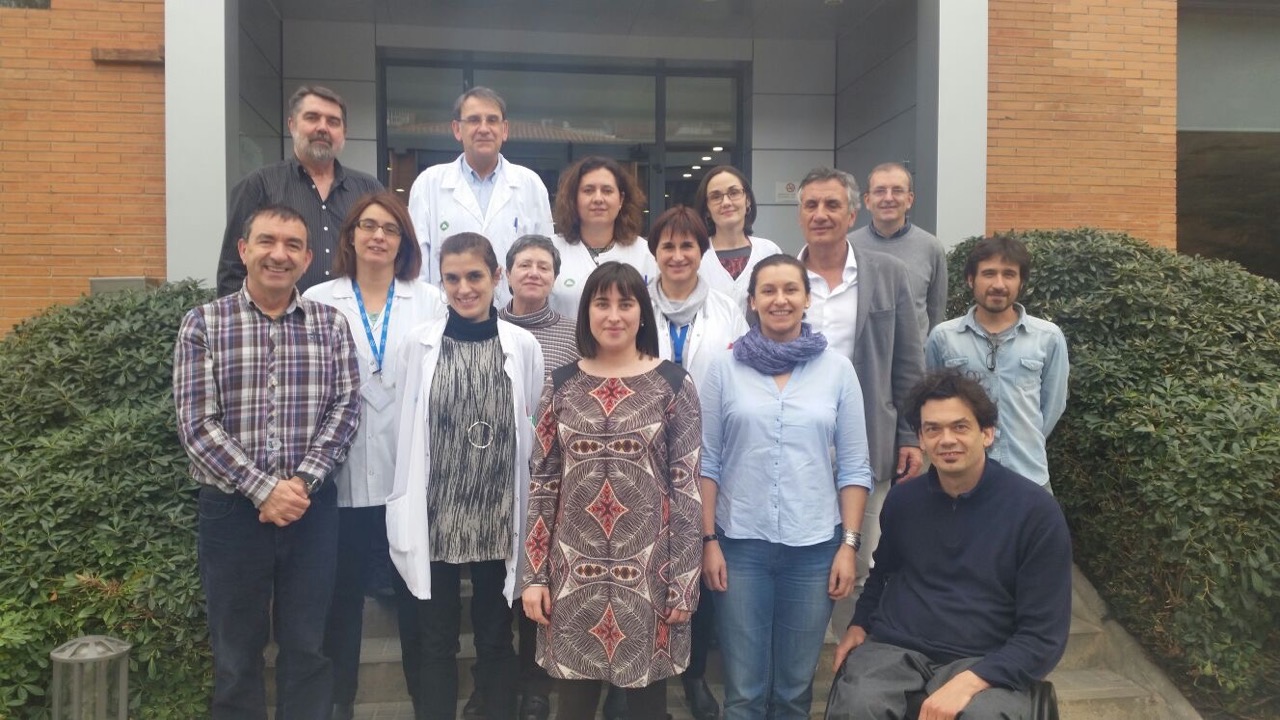About
The Diabetes Research Group is coordinated by Dr Nuria Alonso, who is currently head of the Diabetes and Metabolic Diseases Section of the Endocrinology and Nutrition Service at Germans Trias i Pujol University Hospital. The group is part of the National Network for Biomedical Research (CIBER) Diabetes and associated metabolic diseases section (CIBEREM) of the Instituto de Salud Carlos III.

Research lines
Study of atherosclerosis and other complications associated with diabetes
In recent years, the group has been working actively on characterizing atherosclerotic lesions in patients with diabetes mellitus. These studies mainly focus on the evaluation of differential aspects of the atherosclerotic disease presented in diabetes patients including clinical characteristics and natural history and the study of progress from initial lesions to response to different preventive and therapeutic measures.
Studies of sub-clinical atherosclerotic disease are carried out using different imaging techniques and by studying biological markers for prediction of potential new therapeutic targets.
All these studies are carried out in patients with Type 1 and Type 2 diabetes. The group also studies the possible role of diabetic microvascular disease in the pathology of cardiovascular diseases associated with diabetes. The group also studies alterations in lipid metabolism associated with hyperglycaemia and its pathological role in the development of the complications of diabetes.
Epidemiological studies of diabetes: studies with real-life practice databases
The group started to work in this area of diabetes research in 2009, along with the diabetes group of the IDIAP Foundation Jordi Gol i Gurina, led by Josep Franch. In recent years several studies have been carried out using the SIDIAP database (patients' medical records from primary health care centres of the Catalan Health Institute), with the aid of internal financing from IDIAP and collaboration agreements. This has allowed the groups to carry out pioneering studies in the country. The first studies have focussed on the objective of controlling Type 2diabetes , the use of medication in real cases, complications and associated costs. At the moment the groups are carrying out different projects on the safety of medicines, clinical inertia, costing models, adherence to treatments and cardiovascular morbidity and mortality in diabetes.
Scientific publications
Highlighted 2022 publications
Domingo MM, Teis A, Alonso N, Julian T, Bares D, Barcelo E, Revuelta-Lopez E, Gonzalez B, Codina P, Cediel G, Santiago-Vacas E, Santesmases J, Zamora E, Lupon J, Bayes-Genis A. Effect of diuretic down-titration on pulmonary congestion assessed by lung ultrasound when introducing sodium-glucose cotransporter 2 inhibitors. European Heart Journal. 2022 Oct. 43(2). DOI: 10.1093/eurheartj/ehac544.951
Domingo MM, Teis A, Alonso N, Julian T, Bares D, Barcelo E, Revuelta-Lopez E, Gonzalez B, Codina P, Cediel G, Santiago-Vacas E, Santesmases J, Zamora E, Lupon J, Bayes-Genis A. No harmful effect of diuretic down-titration on pulmonary congestion when introducing sodium-glucose cotransporter 2 inhibitors. European Journal of Heart Failure. 2022 Jul. 24.
Castelblanco E, Hernández M, Alonso N, Ribes-Betriu A, Real J, Granado-Casas M, Rossell J, Rojo-Lopez MI, Dusso AS, Julve J, Mauricio D. Association of α-klotho with subclinical carotid atherosclerosis in subjects with type 1 diabetes mellitus. Cardiovasc Diabetol. 2022 Oct. 21, 207. DOI: 10.1186/s12933-022-01640-3

